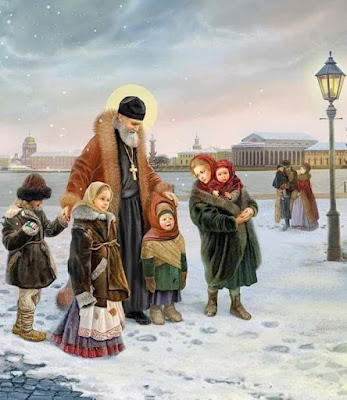This is the second of three homilies ascribed to St. John Chrysostom delivered on behalf of the Holy Protomartyr Stephen. In fact, the first of the three appears to be Nestorian in origin, the last of the three may be ascribed to Saint Proclus of Constantinople, while this second homily is anonymous.
1. The outsiders, who want to plait wreaths for men, hasten to gather roses, lilies, and the rest of the earth’s flowers. For thus is the custom of the earthly plaiters of wreaths. But we who are preparing a wreath for the blessed Stephen – let us harvest the spiritual flowers from Stephen himself so that we may plait a crown of graces for Stephen’s head.
2. For blessed Stephen is a meadow, full of every fragrance, watered with the blood of Christ, anointed with the Holy Spirit, and perfuming everything. For you look at the memory of Stephen and everything is filled with holiness: heaven which received his spirit, the earth which welcomed his body, the air at the same time, and all things are filled with the fragrance of his perfume. And we have him interceding on our behalf, the ornament of the Church, the champion of godliness, the disciple of Christ, the reproof of the Jews, the chief of the martyrs, the benefactor of the widows, the nourisher of the hungry, the helper of the oppressed, the protector of the holy city of Christ, the crown of the good deacons, the pillar of the Church, the splendor of the martyrs, the boast of the world, the foundation of faith; the guardian of our souls, the one who prays for those who are persecuted and defends those who are stoned, and for this reason his face was glorified with angelic grace. For all, it is said, who sat in the council saw that his face was like the face of an angel (Acts 6:15). Let us now crown the champion Stephen, the first champion of Christ, and let us sprinkle him with the flowers of words. So then, he was the adornment of the choir of the apostles, and imparted godliness to the disciples. He won over all people with his gentleness, and he had an exceptional love of humanity, and he was stung not so much by his own labors as by those of strangers, and he considered the need of his neighbor to be his own, and he attended to another’s malady as he would his. This took place in the first proclamations of the word, when faith bloomed abundantly, and the rich immediately lay aside the burden of money, the needy received that which was lacking.
3. In this way Stephen was a steward of beautiful harmony and order, and poverty had this man as benefactor and ally whereas wealth had him as guide. The power of the Spirit rested upon him, and grace had the man as its own house. Therefore, beloved, let us also, with the protomartyr Stephen, celebrate the one who bestows the crowns, the holy and consubstantial Trinity, because to Him belongs the glory, now and always and into the ages of ages. Amen.

















































